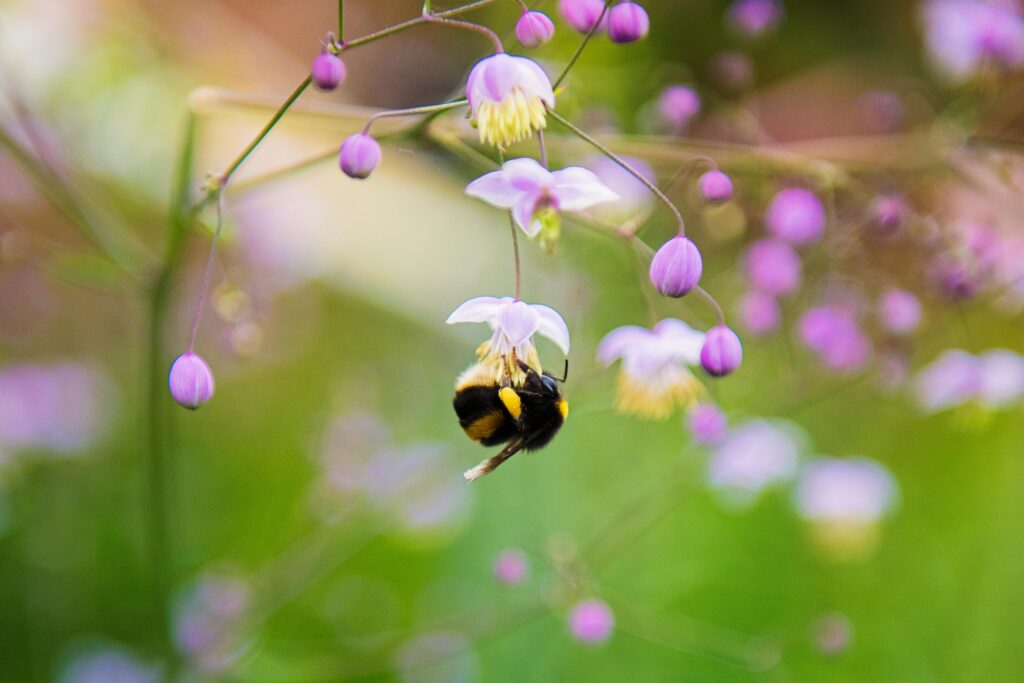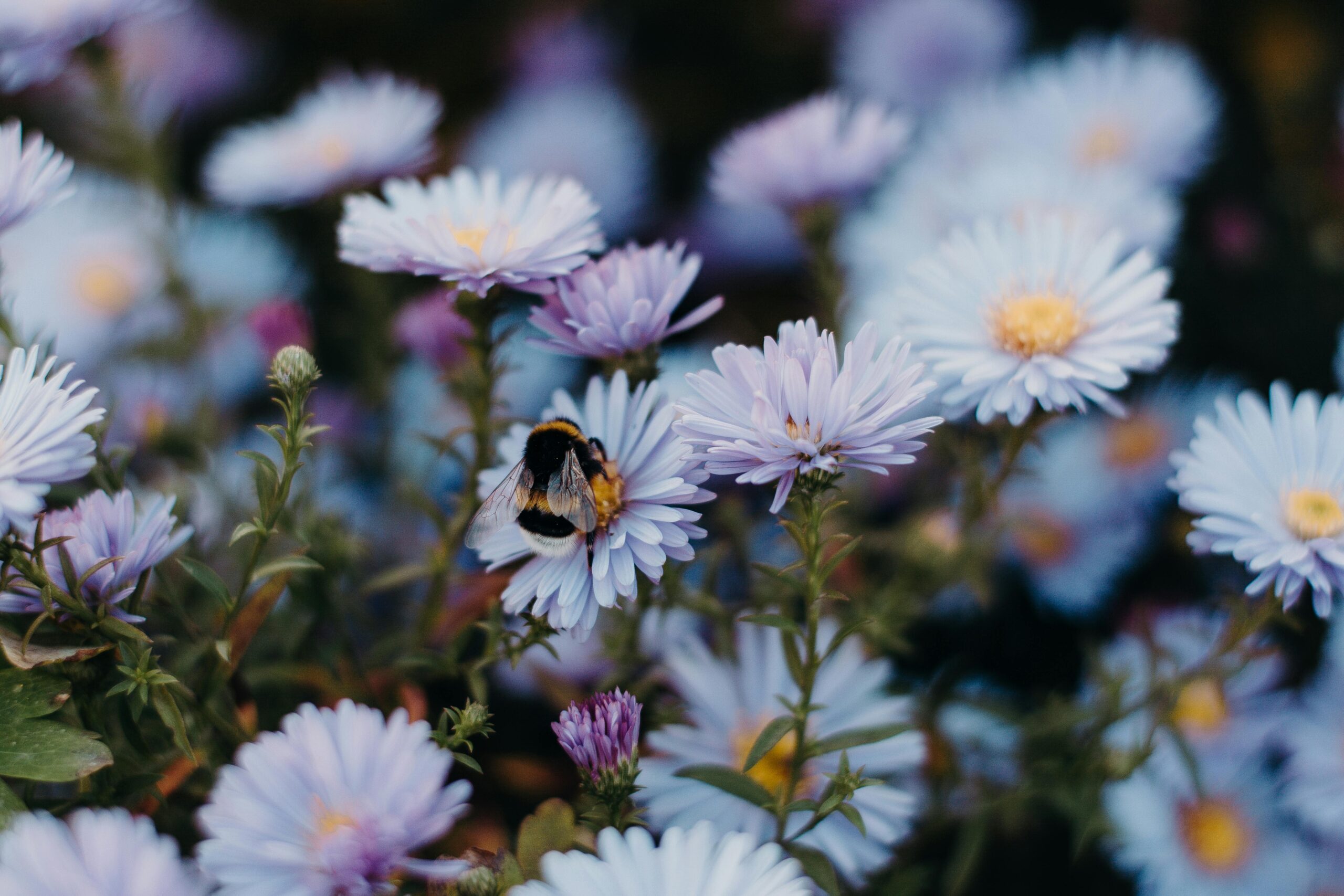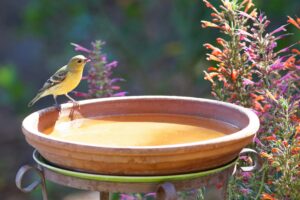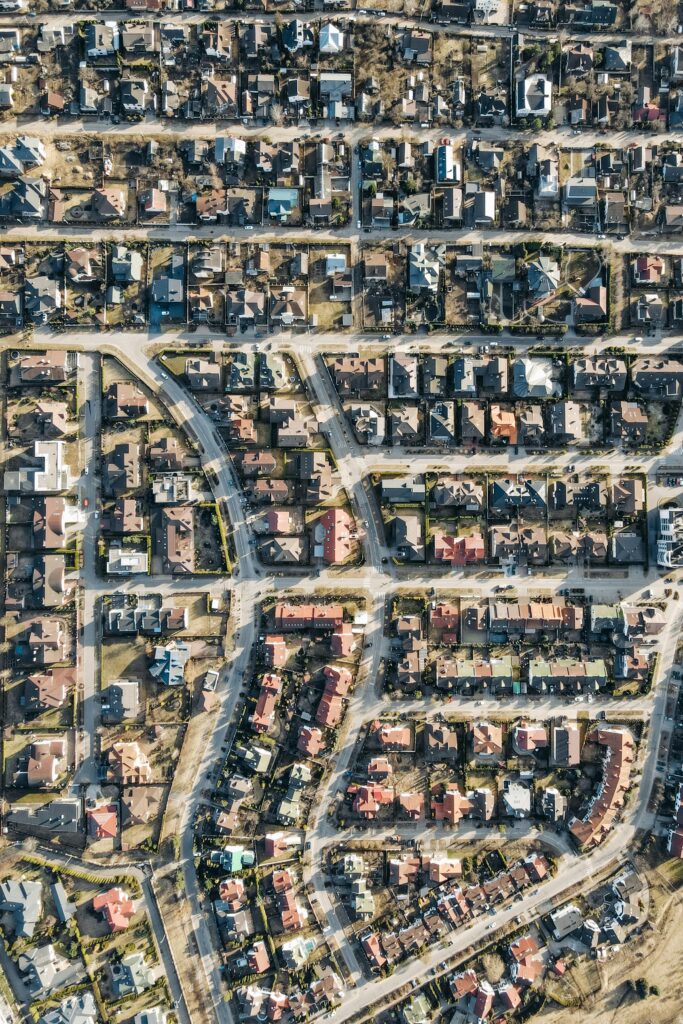
It’s no secret that our environment is in crisis.
Environmental changes, exploding human populations, and harmful environmental practices are devastating our earth and the organisms that call it home.
In an article from the World Economic Forum citing the findings of Berry Brosi, assistant professor of environmental sciences at Emory University, who worked with a group of seventy-seven others, working on “UN’s Intergovernmental Panel for Biodiversity Ecosystem Services (IPBES) pollinator assessment. As the article states, “They spent two years evaluating information from more than 3,000 scientific papers, as well as indigenous and local knowledge from more than 60 locations around the world”, which concluded in these results:
Seventy-five percent of the world’s food crops depend on pollination by at least one of the 20,000 species of pollinators, including bees, butterflies, moths, wasps, beetles, birds, bats, and other vertebrates. And yet, the report warns, more than 40 percent of invertebrate pollinator species, particularly bees and butterflies, face extinction—and 16 percent of vertebrate pollinators are also under threat.
“When we lose even one pollinator species from an ecosystem, it can degrade the functioning of the system overall,” Brosi says. “Studies have shown this relationship between biodiversity of pollinators and both agricultural productivity and plant reproduction in wild ecosystems.”
See the full article here.
And I don’t know about you, but when I read these articles, I tend to go into full red alert, consumed with anxiety and worry about the future. And most often, what follows are feelings of being overwhelmed and hopeless.
In doing so, I recognize that I’m leaving prayer and reliance on God’s grace and provision behind me in the wake of my panic, which is never the right thing to do, and an unhelpful way to engage with the news. After all, the news is necessarily concerned with the world and its concerns, most of which we, as faithful followers of Christ, are warned not to participate in, at least not in the disordered way that we tend to do.
But, as we know from Genesis, God has given us this earth to care for as His stewards, and His instruction to us is to be His ministers not just in prayer, but in thought, word, and deed in all things.
Asking in prayer is always and in all things the place to begin, but how can we live out those prayers for our pollinators and their ecosystems that are so essentially connected to our own?
To answer that question, here are 7 ways to help pollinators as a Christian.
First of all, I have to make an admission.
Most often in my life, when I’m trying to help someone or a situation, what I really want in my heart of hearts is to be the one to fix everything perfectly and completely.
How great would it be to waltz into any situation, wave a magic wand that sets everything right, tell everyone exactly what they were doing wrong in the first place, and then shrug modestly when they applaud and honor us for our efforts?
Super great, right?
But there is one big problem.
God is the only ultimate fixer, the omnipotent agent of change, the only one who knows the right answers and can truly fix what’s broken.
Which is to say, not me, and not you. Not any one of us.
God alone knows His good plan for the earth. He knows what to fix and when it needs fixing.
And he also knows what to leave alone to run its course.
Someday, there will be a new heaven and a new earth that will be perfect and glorious, united under the glory of God. But only God knows when, how, and why.
And that’s ok. It just means that we can do our part to help, not God’s part to ultimately heal all things. God’s got this.
So that means we always need to…
Begin with Prayer
This past season of Lent, I began praying The Great Litany from the Book of Common Prayer as a part of my noon prayers. One of the great things about that essential time is that it’s a season that we pass through, but one which changes us through that passing.
I appreciated it so much that I plan to keep it up from now on. If you’re not familiar with the Great Litany, it begins on page 148 of the BCP, or, for the online version, follow the link here.
Specifically, the litany includes an appeal to God for the earth:
That it may please thee to give and preserve to our use the bountiful fruits of the earth, so that in due time all may enjoy them,
We beseech thee to hear us, good Lord
What I appreciate about this is that it guides us to the submission of our wills to what is pleasing to God. Maybe God’s plan includes letting us reap what we sow, or maybe it’s His good will to save the earth from our wanton destruction. Whichever it is, the prayer concedes to His higher and greater authority and understanding.
Also, the understanding that it leads us to is that the reason we want to preserve the earth is for others- not just for ourselves and for our health and pleasure, but for those who come after us. This is why God gives us the good gifts that He does, not for our sake alone, but to preserve its goodness for those that are following after.
Praying for the earth, not just for our pleasure, but for the sake of others is an important part of being a part of the community of believers on earth.
Rethink the Purpose of a Garden
We tend to think of our gardens as our own, that they exist just for us and for our pleasure.
But many of us are beginning to understand why that can’t be true.
We are more connected than we think, as we share the same earth, air, and water. What we do in “our” area of the earth affects everyone around us- not just our neighbors but all the countries across the whole earth.
Our typical gardening practices are now showing an increasingly noticeable negative impact on our pollinators. Here in the US, for instance, we have been trained to prefer plant species from places like Europe and Asia, instead of plants native to our own United States. We like them because they are attractive and easy to grow, but in choosing them we end up sacrificing native American habitats to copy the aesthetic of an English country garden or the blossoms of springtime in Japan.
Meanwhile, our native insects, pollinators, birds, and small mammals are slowly dying, starving because they don’t have the native plants they need for food and raise their young.
Also, with the increased use of pesticides, we are killing not only the insects that annoy us and our plantings, like slugs and mosquitoes, but also all of the creatures that eat them- bats, birds, reptiles, amphibians, and small mammals.
But there is a better way.
A new movement in gardening is growing that focuses on native plantings and healthy, local ecosystems.
And it’s making a big difference.
Which brings us to:
Discover the Beauty and Awesomeness of Native Plants
I get it, native plants can look a little bit like weeds if you’re used to the showier flowers of foreign plants like begonias, roses, orchids, and tulips.
However, using these plants deprives the native pollinators of the necessary food and shelter they need to survive.
It’s incredible to think that a yard full of blooming flowers may be just as sterile and useless as a scrubby grass lawn to wildlife!

In an article by the Audobon Society, they offer this info:
Over the past century, urbanization has taken intact, ecologically productive land and fragmented and transformed it with lawns and exotic ornamental plants. The continental U.S. lost a staggering 150 million acres of habitat and farmland to urban sprawl, and that trend isn’t slowing. The modern obsession with highly manicured “perfect” lawns alone has created a green, monoculture carpet across the country that covers over 40 million acres. The human-dominated landscape no longer supports functioning ecosystems, and the remaining isolated natural areas are not large enough to support wildlife.
-excerpt from Why Native Plants Matter (read the full article here)
Native plants, however, provide a rich banquet for our native pollinators who depend on them for their very survival. They naturally bloom at the right time and in exactly the right way for the organisms that need them. They feed, shelter, and nourish our native pollinators, which in itself is a beautiful thing.
I get it though. I also used to prefer exotic ornamental plants.
I understand how natives can be perceived as not as attractive- but only until you understand the beauty and value of what they offer.
And now I think they’re beautiful.
To support wildlife, we need to let our ideas of what we like and what’s beautiful in our yards be transformed to prefer the subtle offerings of native plants.
Lead researcher and native plant movement advocate Doug Tallamy, University of Delaware Professor of Entomology, encourages homeowners to plant 70 percent of native plants in their yards. And not just any natives- native plants that are both specific to your area and productive to the species that need them. He labels these keystone species.
That means that you can still use 30 percent of the non-native ornamentals that you love, and still help pollinators.
If everyone did this, we could reverse the extinction and destruction of habitat that’s happening around the US.
How incredible is that? Home gardeners can make a big environmental impact by making relatively small changes to support pollinators in a significant way.
If you want to learn about what’s native to your area, here are some resources to help:
Cut Down on Pollution
Native plants not only support the native pollinators that we have in our yards, but they also do more to enrich the environment. Since they are uniquely situated to the climate and conditions where they’re planted, they need less or no supplemental water and require no fertilizers or pesticides.
In addition, they filter out pollutants from the air, and groundwater, and keep pollution out of our lakes and streams.
Furthermore, creating gardens with native plants will cut down on mowers that use gas and output pollutants. Using natural practices like leaving the leaves reduces the amount of time using leaf blowers, which cause noise pollution and can be devastating for insects using the leaves as shelter.
Pretty great right?
All of these things are great ways to help care for our pollinators and the planet.
Offer Clean Sources of Water
All of our native pollinators need water. Most of them have a much smaller traveling range than we may think, and they need multiple clean water sources within that area to help give them the moisture they need to survive.
Bird baths and small, shallow trays with small rocks to prevent drowning are good things to put out abundantly in our gardens.
And yes, these are time-intensive to keep filled and clean, but think of it as just another way to enjoy being outside in nature, and much better than spending all that time watering the flowers! Which of course, you won’t need to do with all your native plants.
Leave Your Yard a Little Messy
I know this one is tough, especially for those who learned to garden in previous generations where the idea that “cleanliness is next to godliness” was applied strictly to house and yardkeeping, instead of to the soul, as was originally intended.
But we need to let the ideas that we inherited from our parents and grandparents give way to a better understanding, and a new aesthetic.
And I get it. We’ve been trained to like clean yards.
Now we know that the compulsion for neatness in our yards is hurting, not helping, the environment. And it is largely a matter of what we’ve been trained to like.
Think about it, no one walks into a forest and thinks that it’s too messy, do they?
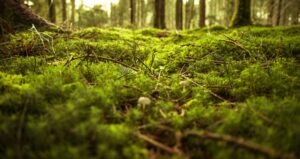
No, we look at the colors, the leaves, trees, moss, rocks, and sticks scattered haphazardly and see the natural beauty that God gave to the woods.
So why can’t we apply some of that to how we look at our own yards and outdoor spaces?
Our pollinators need us to learn to leave those “messy” areas of our yards so that they can have shelter from weather and predators, a place to lay their eggs and let their young develop, and a home where they can safely eat and live as they do the good work that God created them to do.
Keeping our yards neat and clean may be what we prefer, but the reality is, that clean, neat, and sterile yards will be detrimental to pollinators, and therefore the welfare of the generations that are coming after us.
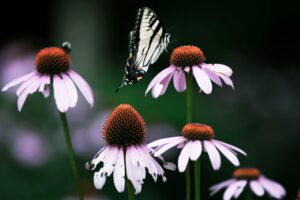
If we want to preserve the earth for our children and grandchildren, and for all the other people in the world, we have to be willing to change- not necessarily just for our good, but for theirs. If we keep on going the way that we’re headed, the earth may become less able to support life for future generations.
There is a balance that we can make between our personal preferences and that which will benefit wildlife. The important thing is to be willing to ask those questions and to be willing to change.
If we are called to a life of following Jesus Christ, who sacrificed Himself for us, how are we willing to learn and grow for the sake of being good stewards of this earth that God has given us to care for?

Genesis 1:28 says:
God blessed them, and God said to them, ‘Be fruitful and multiply, and fill the earth and subdue it; and have dominion over the fish of the sea and over the birds of the air and over every living thing that moves upon the earth.’
Genesis 2:15 tells us that God placed Adam in the garden of Eden to work it and keep it. We follow this example by tending to the Earth.
And Psalm 24:1 reminds us:
The earth is the Lord’s and all that is in it,
he world and all who dwell therein.
As stewards, we honor God by caring for His creation. We recognize that it belongs to God, and we do our best to use its resources responsibly.
Our willingness to learn, grow, and steward this Earth reflects our love for God and our commitment to caring for His creation.
“How can we all better care for God’s whole earth?” is a question that the whole creation thinks is worth asking, again and again.
